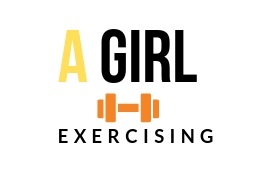Can Women Gain More Muscle By Training Less Often?
The more work you put into something, the better results you will achieve. This has always been accepted truth that applies to many areas of life. The harder you study, the better grades you will achieve. The more time you spend fine-tuning your athletic skills, the better athlete you will become.
Contrary to what you might think, the answer to this question is no!
Every single process that occurs within our bodies is centered around keeping you alive and healthy. Through thousands of years of evolution the human body has become quite a fine-tuned organism that can adapt well to the specific conditions that are placed upon it.
Exercise is good for our bodies
There are several benefits to regular physical activity such as:
- Lowering blood cholesterol level
- Lowering risk of type 2 diabetes and some cancers
- Strengthening bones, muscles and joints and lower the risk of osteoporosis
- Recovering better from period of hospitalization or bed rest
- Reducing risk of a heart attack
- Managing weight
- Increasing energy levels, mood, feel more relaxed and sleep better.
Source: Better Health Channel Victoria.
What happens to my body during over-training?
If you answered something to the effect of “the muscles get bigger and stronger”, then congratulations! You are absolutely correct. By battling against resistance beyond the muscle’s present capacity we have posed a threat to the musculature.
Our bodies recognize this stress as potentially harmful and as a natural adaptive response the muscles will hypertrophy (increase in size) to protect the body against this threat. As we consistently increase the resistance from week to week the body will continue to adapt and grow.
However, there are also some dangerous side effects from over training such as
- Increased resting heart rate, decreased appetite, restless legs and dehydration;
- Sleep disturbances such as poor sleep quality or insomnia;
- Mental effects such as poor mood and increased stress;
Read more side effects at “How much exercise is enough” article

I Am Light Women’s Tri-Blend Racerback Tank
$26.99 this monthly only.
All proceeds support the Girls on the Run Foundation
How can I tell if I’m over training?
If you’re wondering if you could be over training your body, consider if you have recently experiencing any of the 9 Signs of overtraining below:
- Decreased performance
- Increased perceived effort during workouts
- Excessive fatigue
- Agitation and moodiness
- Insomnia or restless sleep
- Loss of appetite
- Chronic or nagging injuries
- Metabolic imbalances.
- Psychological stress and/or depression.
Sound simple? Ultimately it is, but the most important thing to realize in relation to all of this is that the muscles can only grow bigger and stronger if they are provided with sufficient recovery time. Without the proper recovery time, the muscle growth process simply cannot take place.
What should I do if I’m over training my body?
Your goal in the gym should be to train with the minimum amount of volume needed to yield an adaptive response. Once you have pushed your muscles beyond their present capacity and have triggered your thousand-year-old evolutionary alarm system, you have done your job. Any further stress to the body will simply increase your recovery time, weaken the immune system and send your body into catabolic overdrive.
Most people train way too often and with far more sets than they really need to. High intensity weight training is much more stressful to the body than most people think. The majority of people structure their workout programs in a manner that actually hinders their gains and prevents them from making the progress that they deserve.
Here are 3 guidelines that you should follow if you have over trained your body.
1) Train no more than 3 days per week.
2) Do not let your workouts last for longer then 1 hour.
3) Perform 5-8 sets for large muscle groups (chest, back, thighs) and 2-4 sets for smaller muscle groups (shoulders, biceps, triceps, calves, abs).
4) Sleep 8 hours a day
Conclusion
Disclaimer
This article is for informational purposes only. It is not medical advice and should not be used or interpreted as such. You should always consult a medical professional before making drastic changes to your diet and physical exercise



Leave a comment